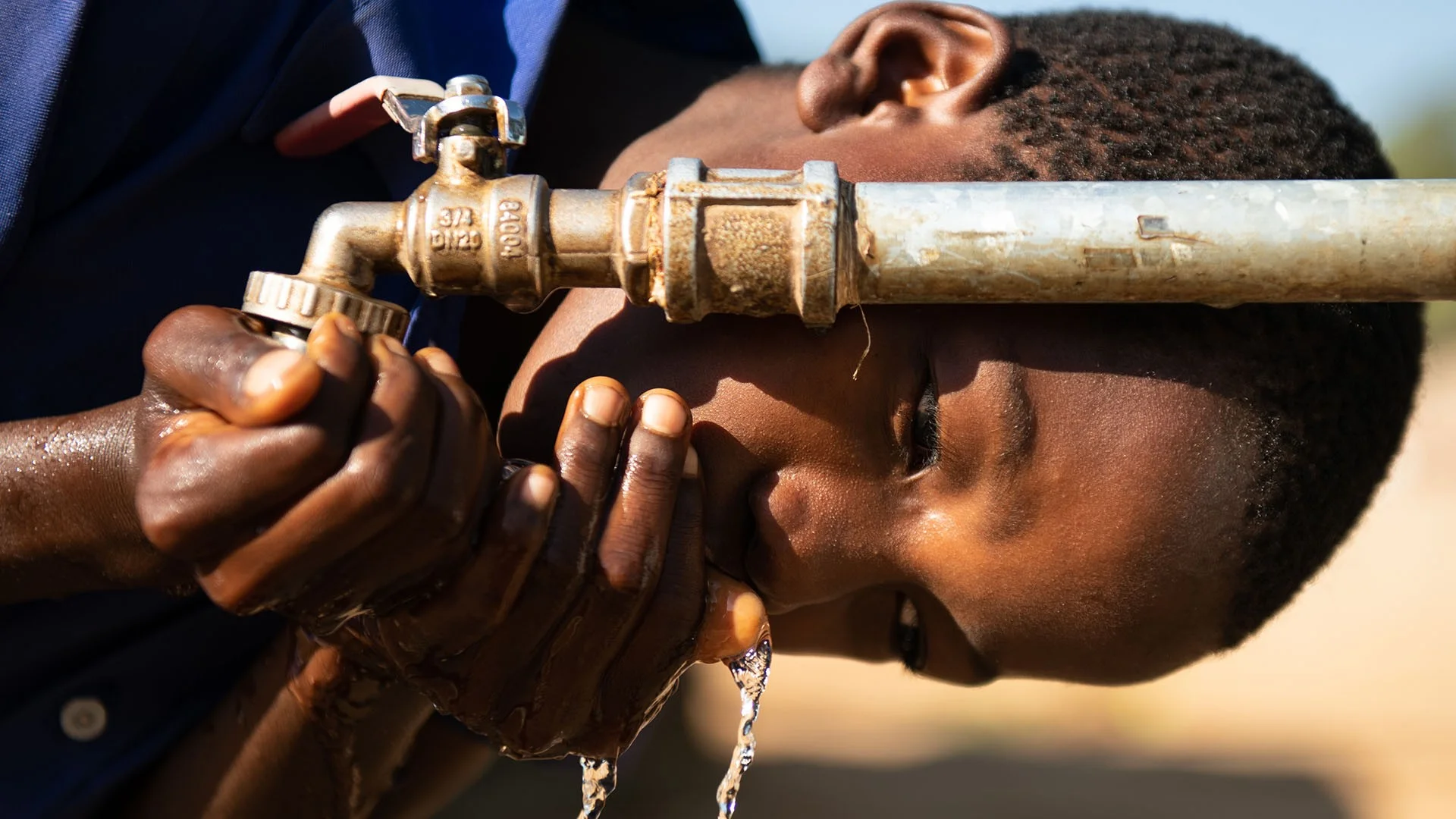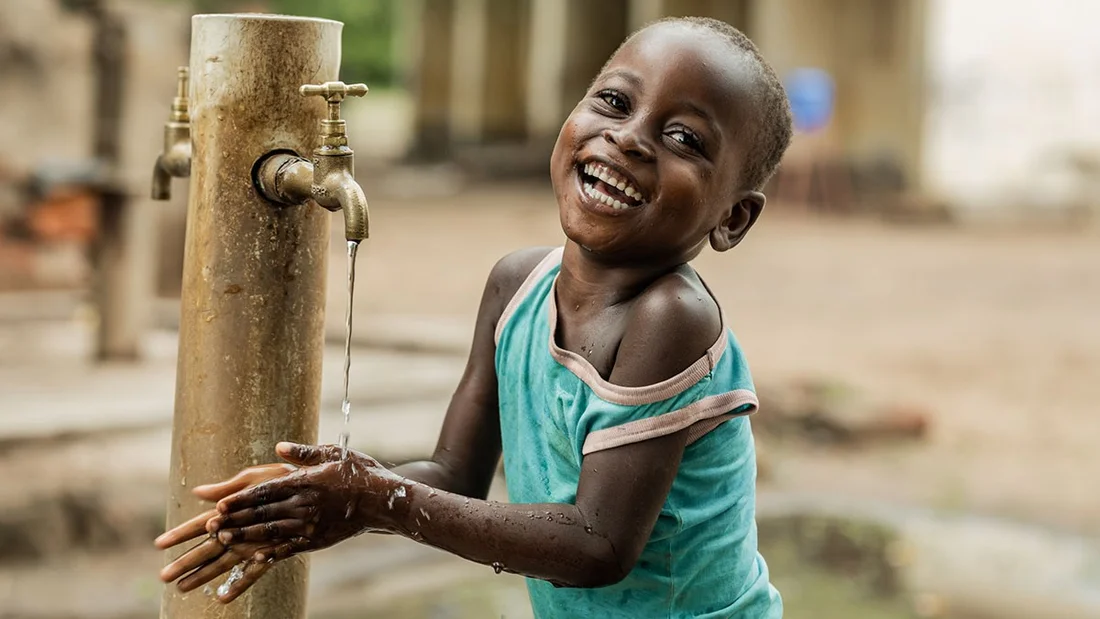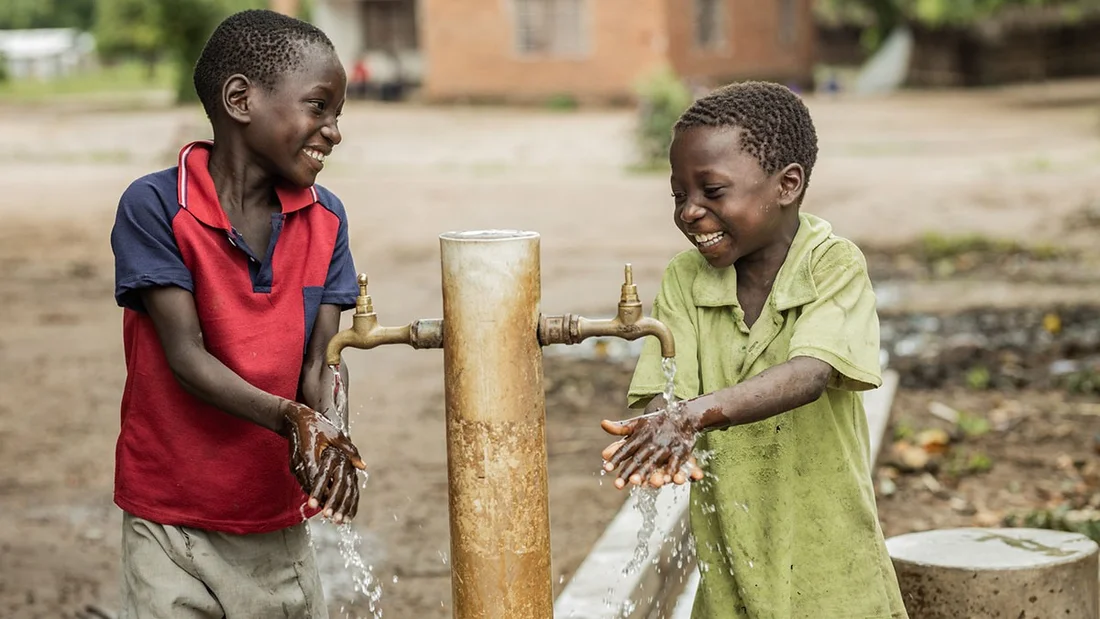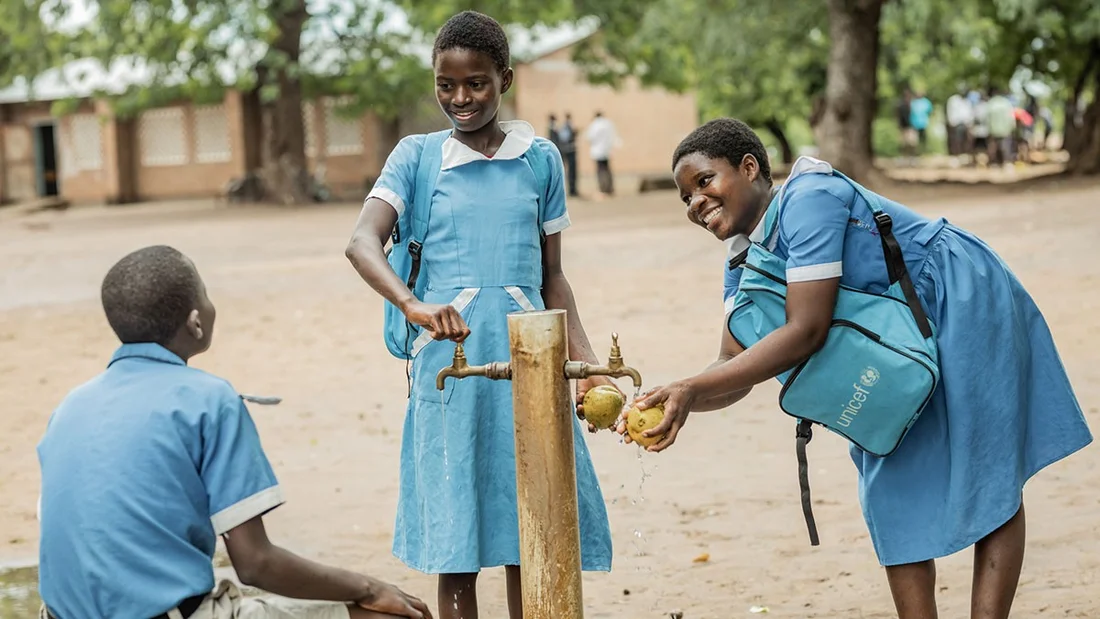Contaminated drinking water is part of everyday life for many children in Malawi. Because it makes them ill, they are often too weak to attend school. UNICEF is installing solar pumps that reach groundwater that is deeper and thus cleaner.
The situation
The impact of climate change can already be felt in Malawi. Dry periods are longer and more pronounced, and groundwater levels are falling. However, most wells and hand pumps only reach a maximum depth of 45 meters, which is no longer deep enough in some parts of the country.
The lack of access to clean drinking water has far-reaching consequences for children in Malawi, with many suffering from diarrhea and other infections because they have no choice but to drink contaminated water. Being ill frequently keeps them out of school, and in the worst cases may be fatal.
Children who are responsible for fetching water also have to walk increasingly long distances to reach the nearest water point. This leaves them no time for school. Women and girls walking long distances to fetch water, sometimes in the dark, are at particular risk of being victims of sexual violence.
The aim of the program was to outfit five schools in Malawi with special solar-powered pumps that reach deeper-lying groundwater and supply more water than hand pumps. They reach down to a depth of 250 meters and can thus ensure a long-term supply of groundwater. Solar-powered systems are also significantly more environmentally friendly than diesel-powered systems. The robust structure of solar pumps makes them more resistant to flooding, which strengthens the whole community in emergencies.
What UNICEF has achieved thanks to your help
The program ran between November 2021 and December 2023, during which time solar-powered water systems were installed at all five schools, thanks to donation funds from UNICEF Switzerland and Liechtenstein. More than 33,350 people now have access to safe drinking water. The new water systems benefit not just students and teachers, but people in neighboring villages as well.
The program was also slightly adapted and expanded during the COVID-19 pandemic. A handwashing station was added to each school’s solar-powered water pump so that good hygiene can be observed in the schools – which even after the pandemic remains an important measure for preventing the spread of disease.
The program also includes the training of specialists to operate and maintain the water systems and raising community awareness of important issues related to hygiene practices.



